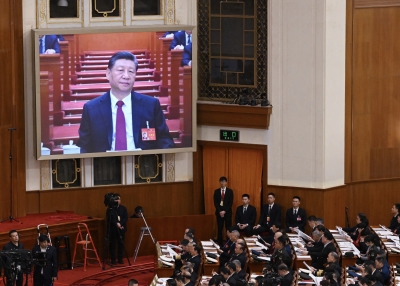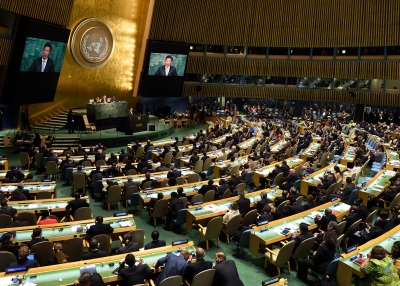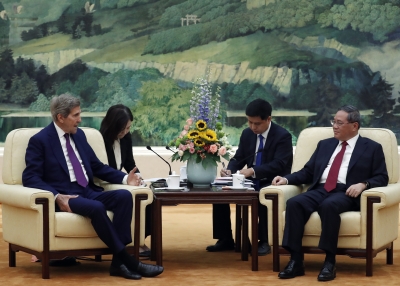Climate, Energy, and the Environment

The Climate, Energy, and the Environment pillar at the Center for China Analysis (CCA) engages policymakers, economists, and experts across a variety of fields to assess climate-related challenges and develop constructive solutions. China’s rapid development in recent decades fueled its economic growth and brought hundreds of millions out of poverty — but it also contributed to myriad environmental and sustainability challenges, resulting in China’s current status as the world’s largest greenhouse gas emitter. Ambitious action by China is critical for achieving the Paris Agreement’s goal to limit average global temperature increases to 1.5°C, as well as for cultivating a healthy and sustainable environment in China and around the world.
Our initiatives tap into key tools for China’s environmental progress, including carbon pricing, international climate cooperation, and the global renewable energy transition. Our carbon pricing work aims to resolve design challenges present in China’s national emissions trading program, advance its implementation, and build regional and international connections between carbon markets across Asia. We promote China’s international climate cooperation by convening dialogues between the United States and China, the world’s two major emitters, and other nations willing to pursue cooperation in this area. We also conduct analysis on the evolving role of the international community in supporting China’s climate action, allowing us to evaluate issues related to climate and the environment from a geopolitical as well as domestic lens.
A major initiative supported by the CCA is the High-level Policy Commission on Getting Asia to Net Zero. This broader ASPI initiative is designed to develop pan-regional political momentum behind the Paris Agreement's goal of reaching net zero emissions. Major regional emitters China, India, Japan, Indonesia, and Korea must be fully on board for this to be possible. Together they represent 39.4% of global carbon emissions, of which China alone represents 26.4%. Therefore, the CCA will be actively engaged with Chinese and other regional counterpart institutions to build political and policy momentum around this core task for the planet.







